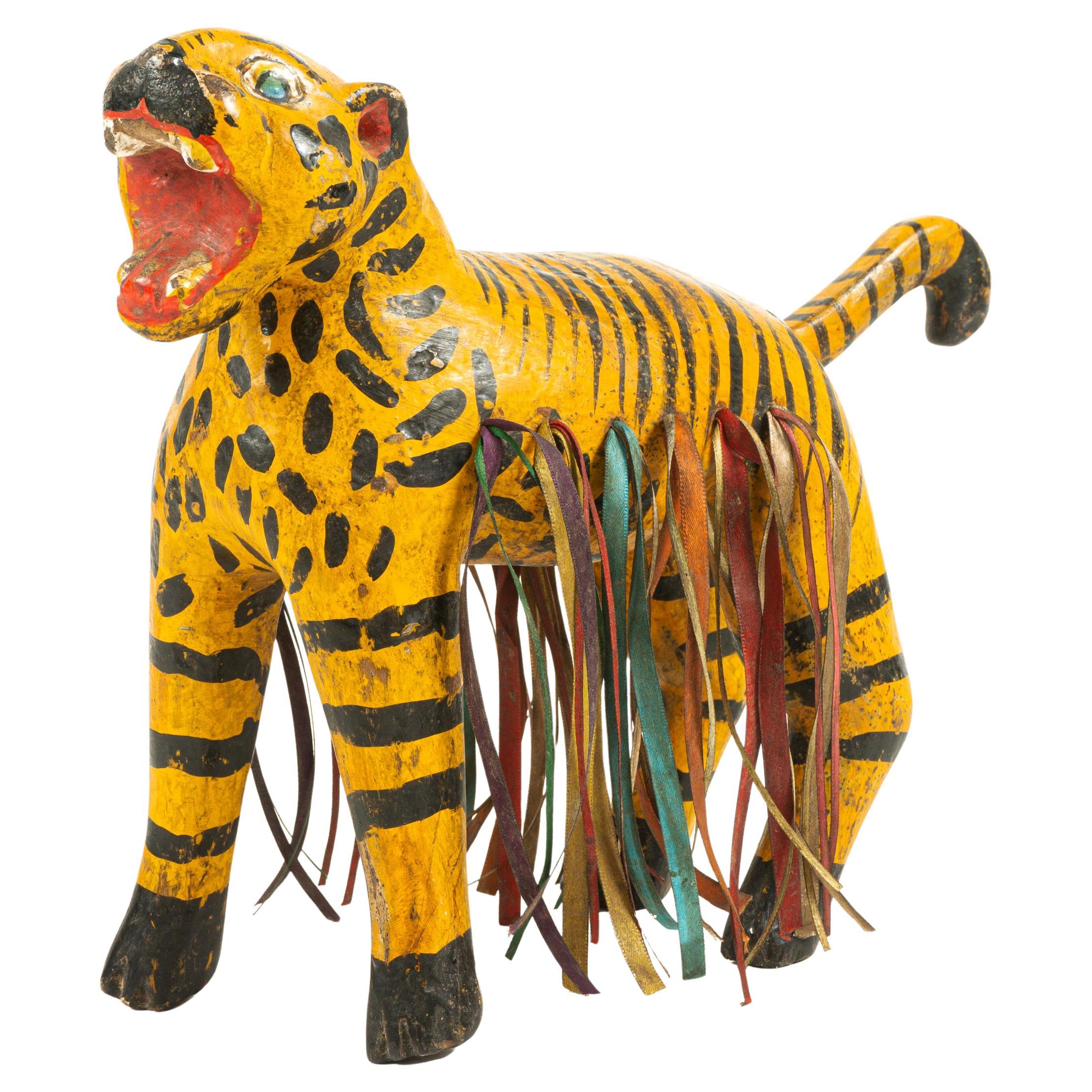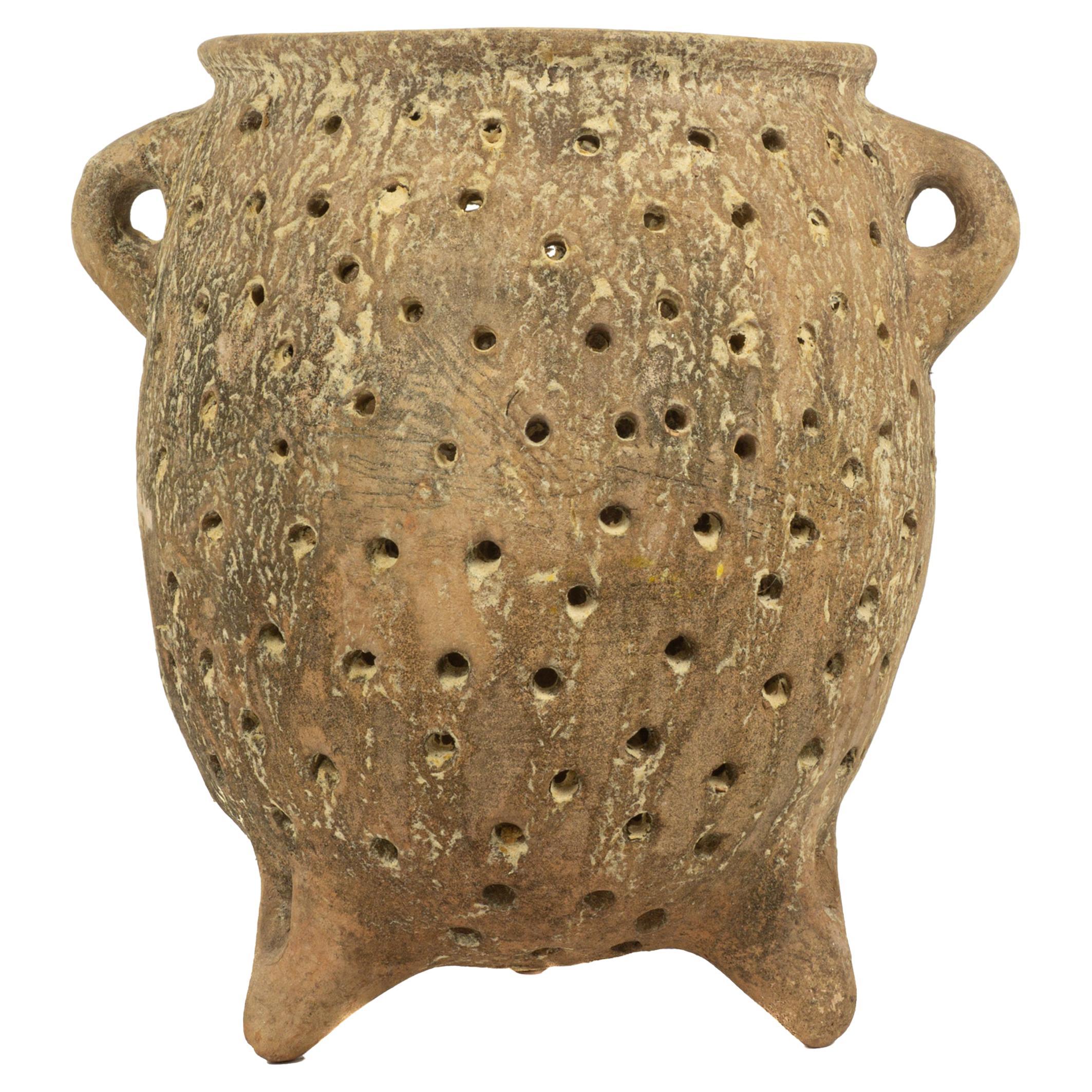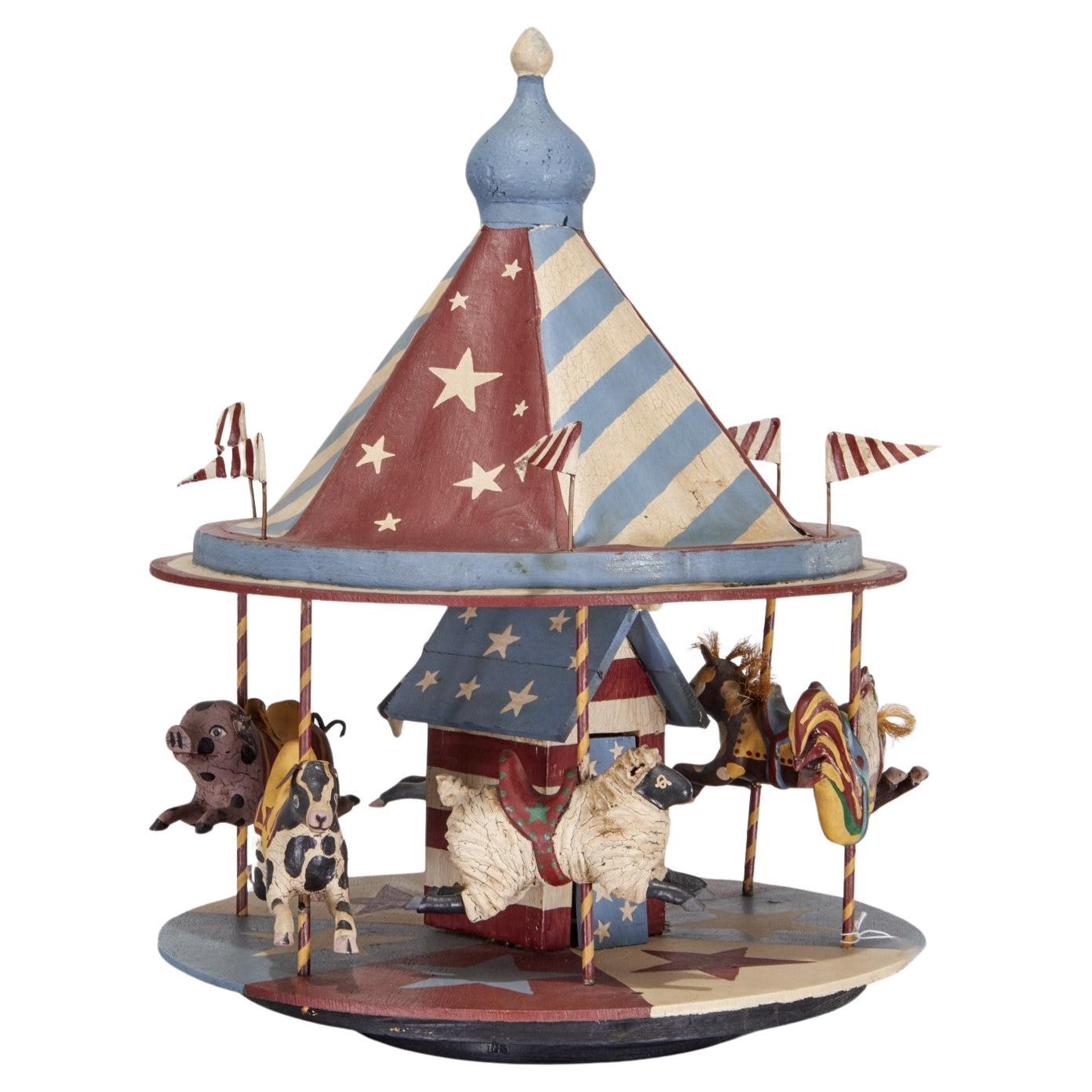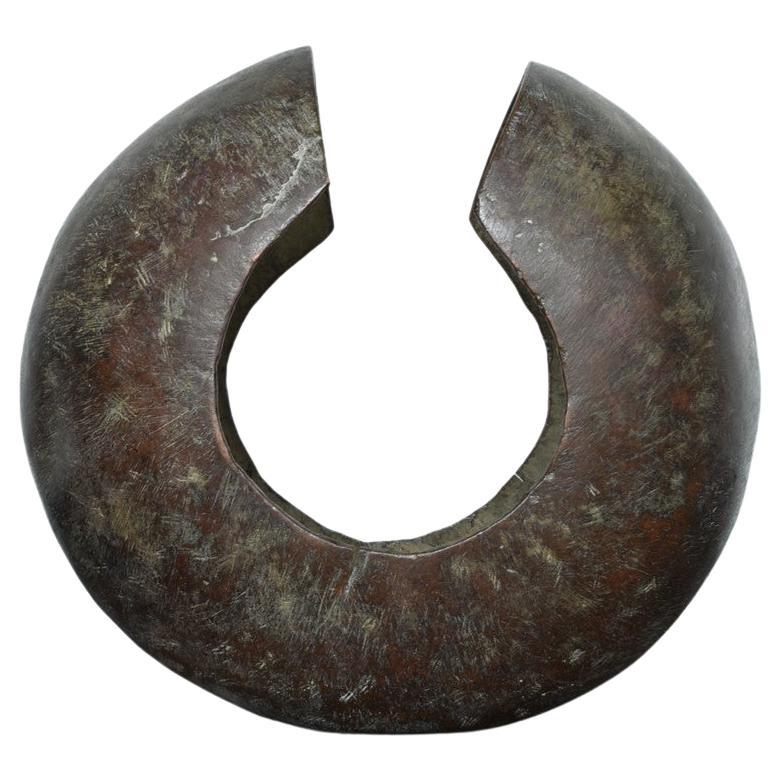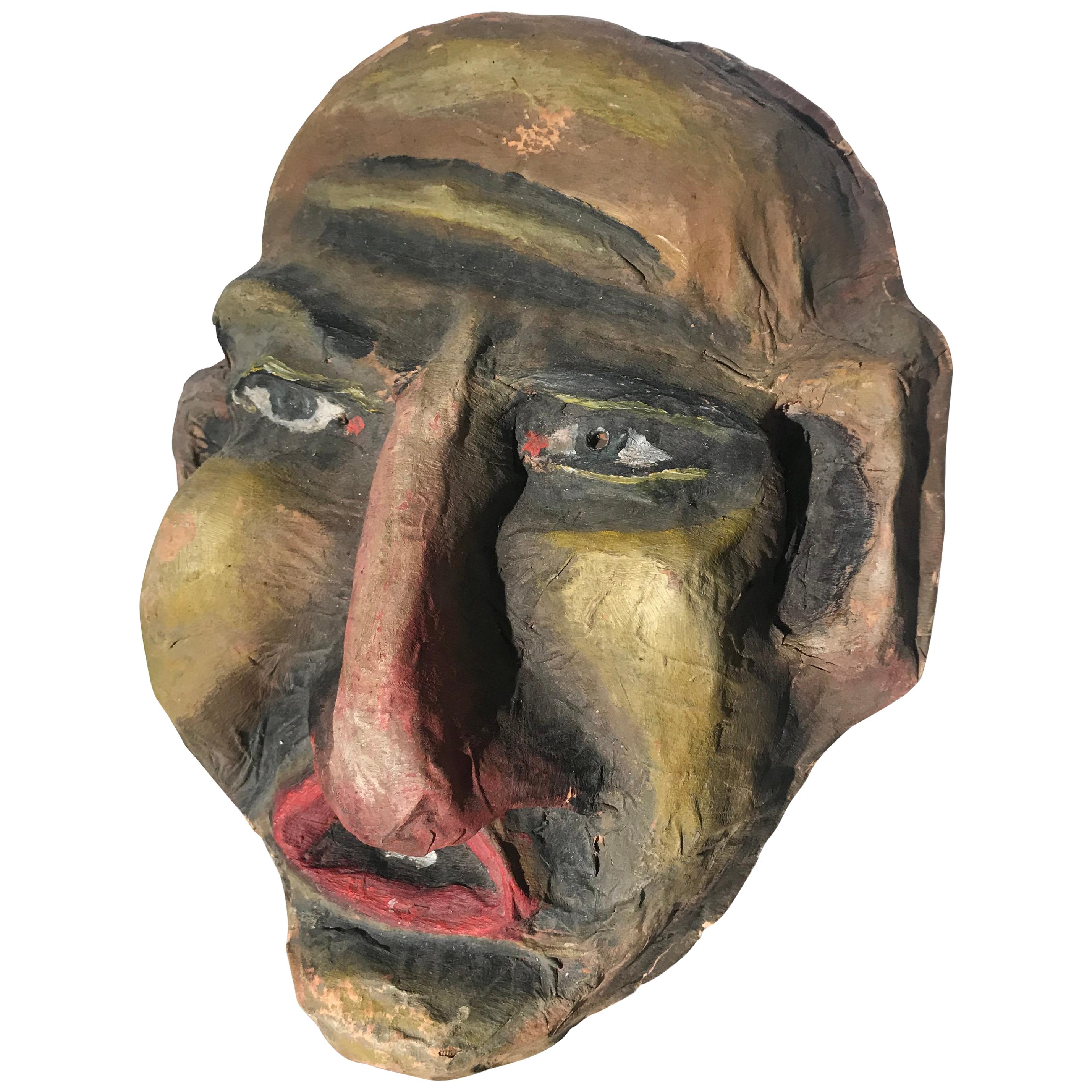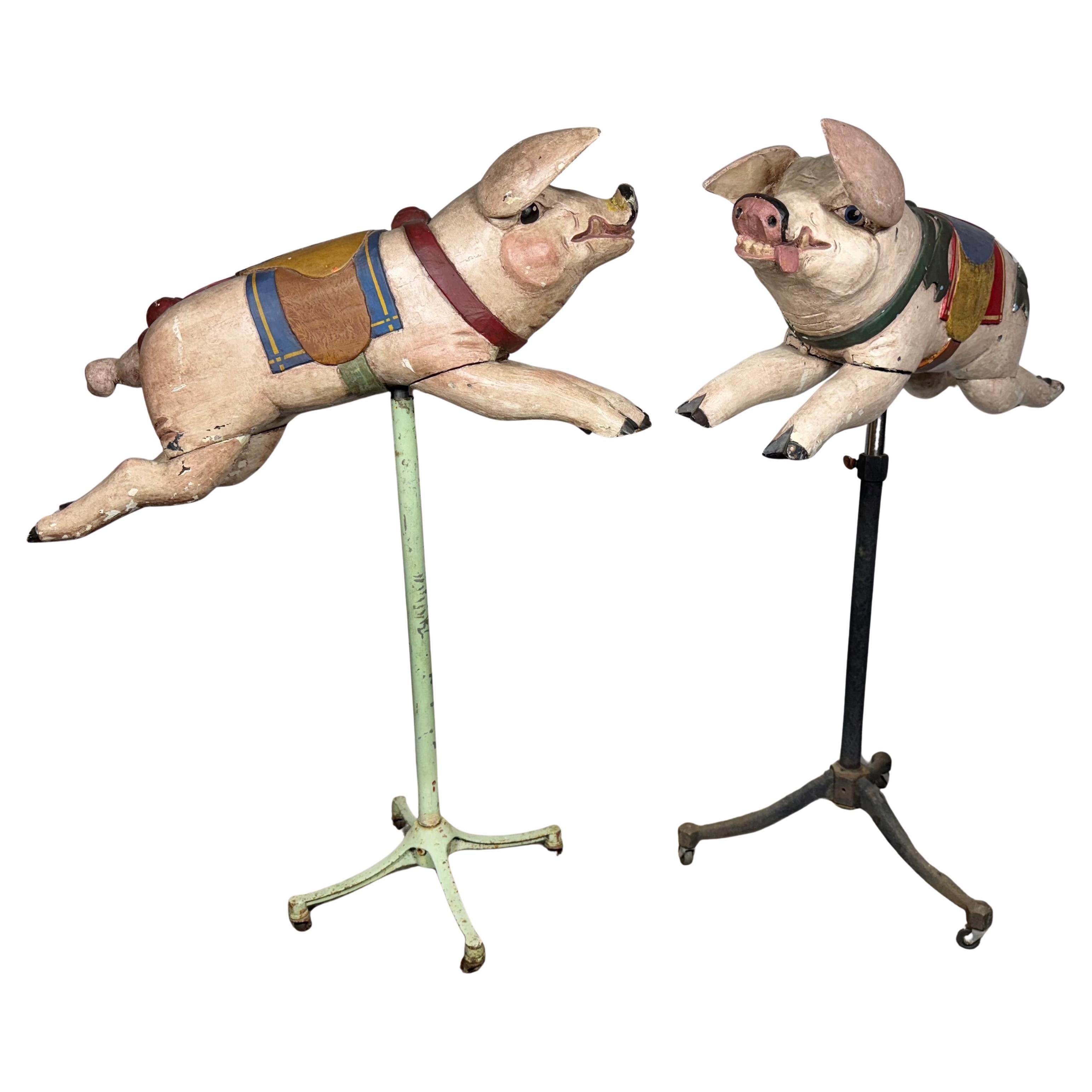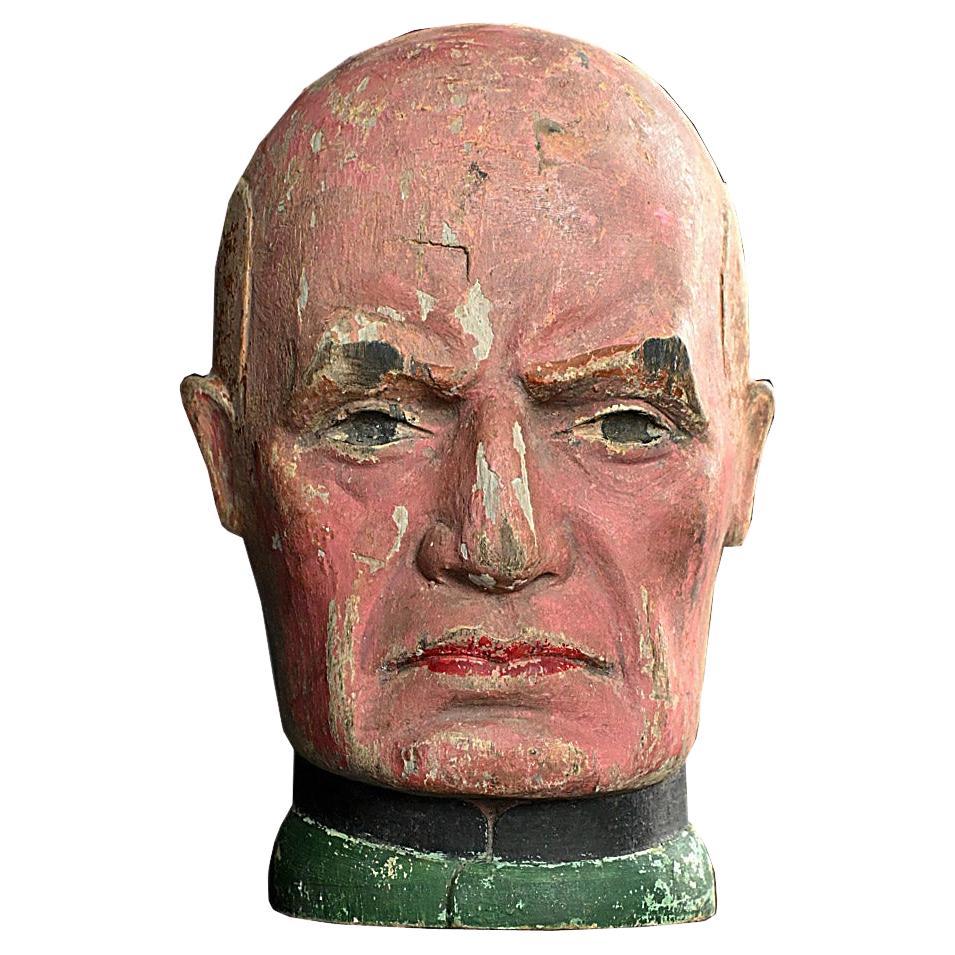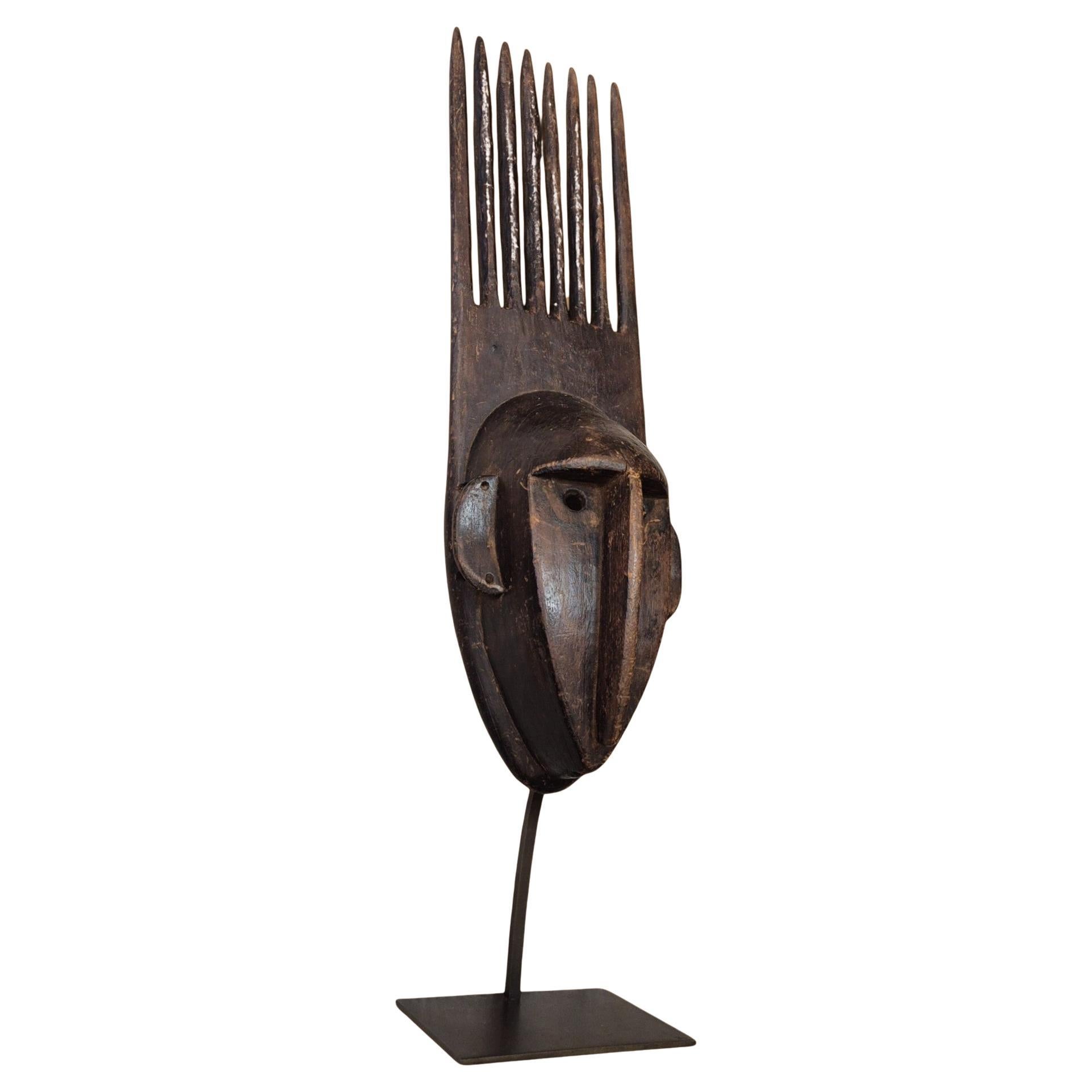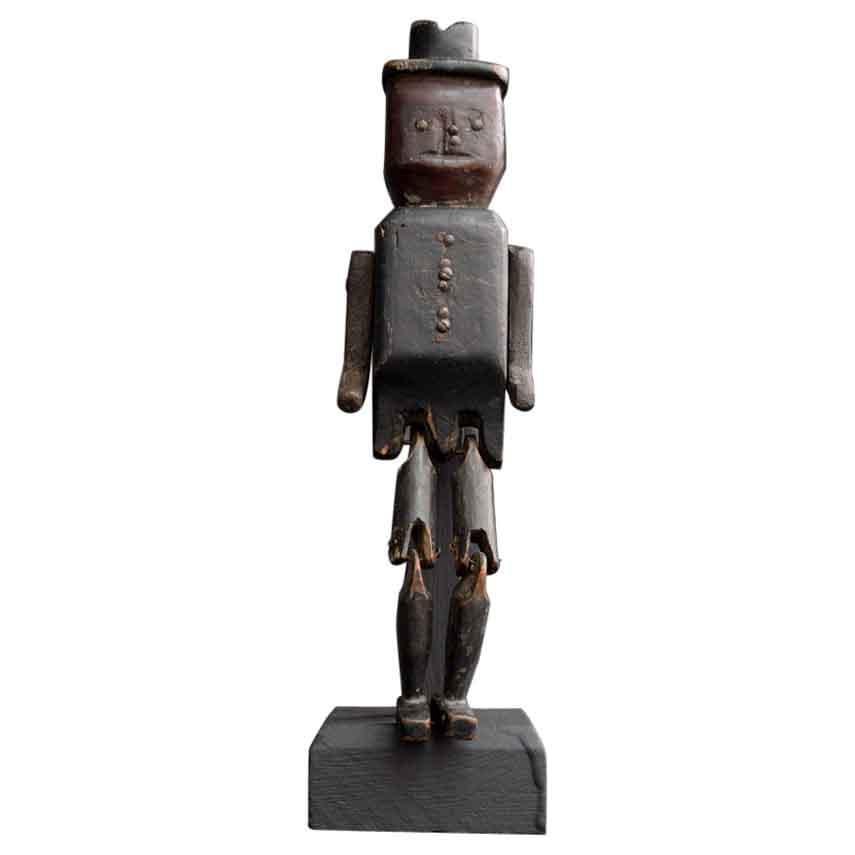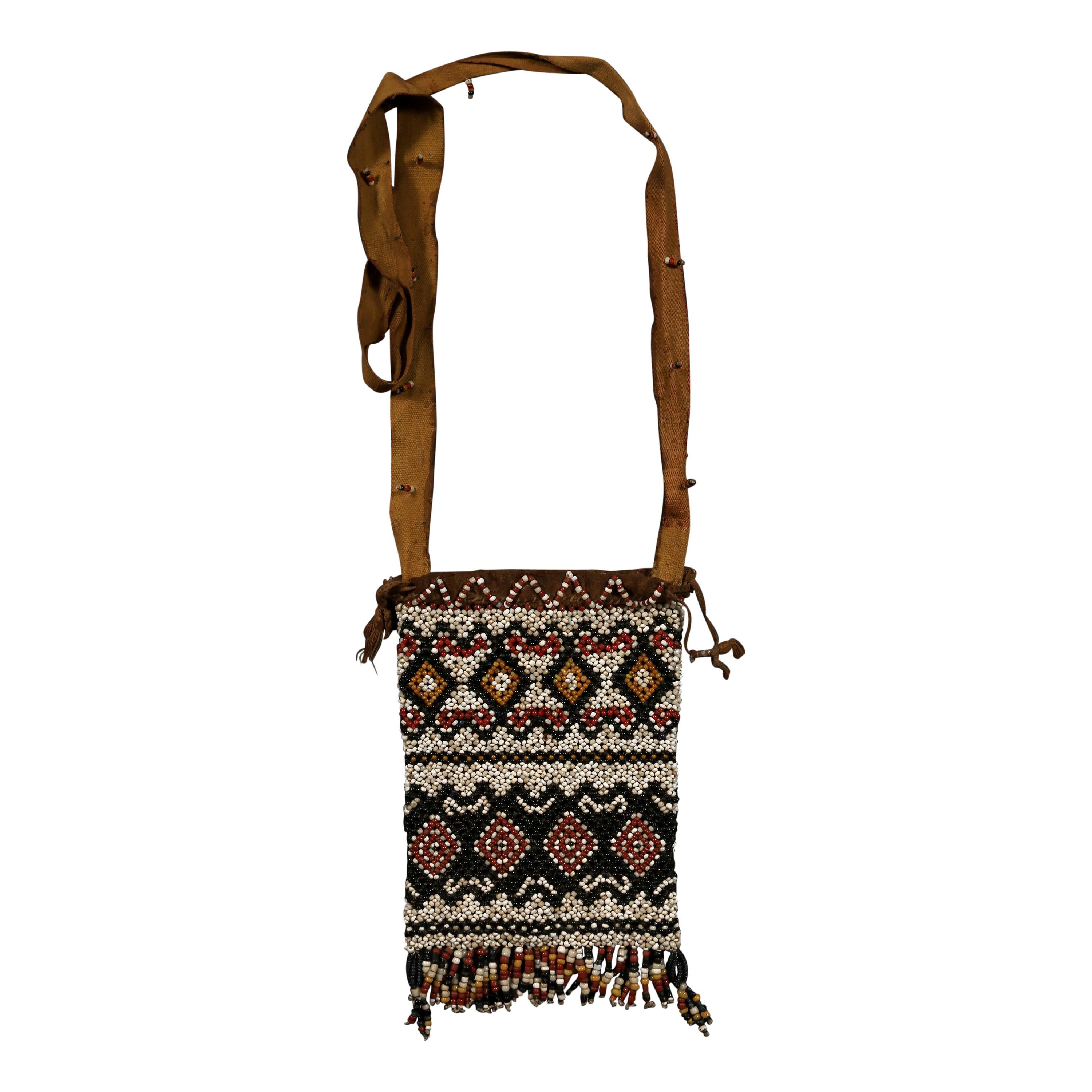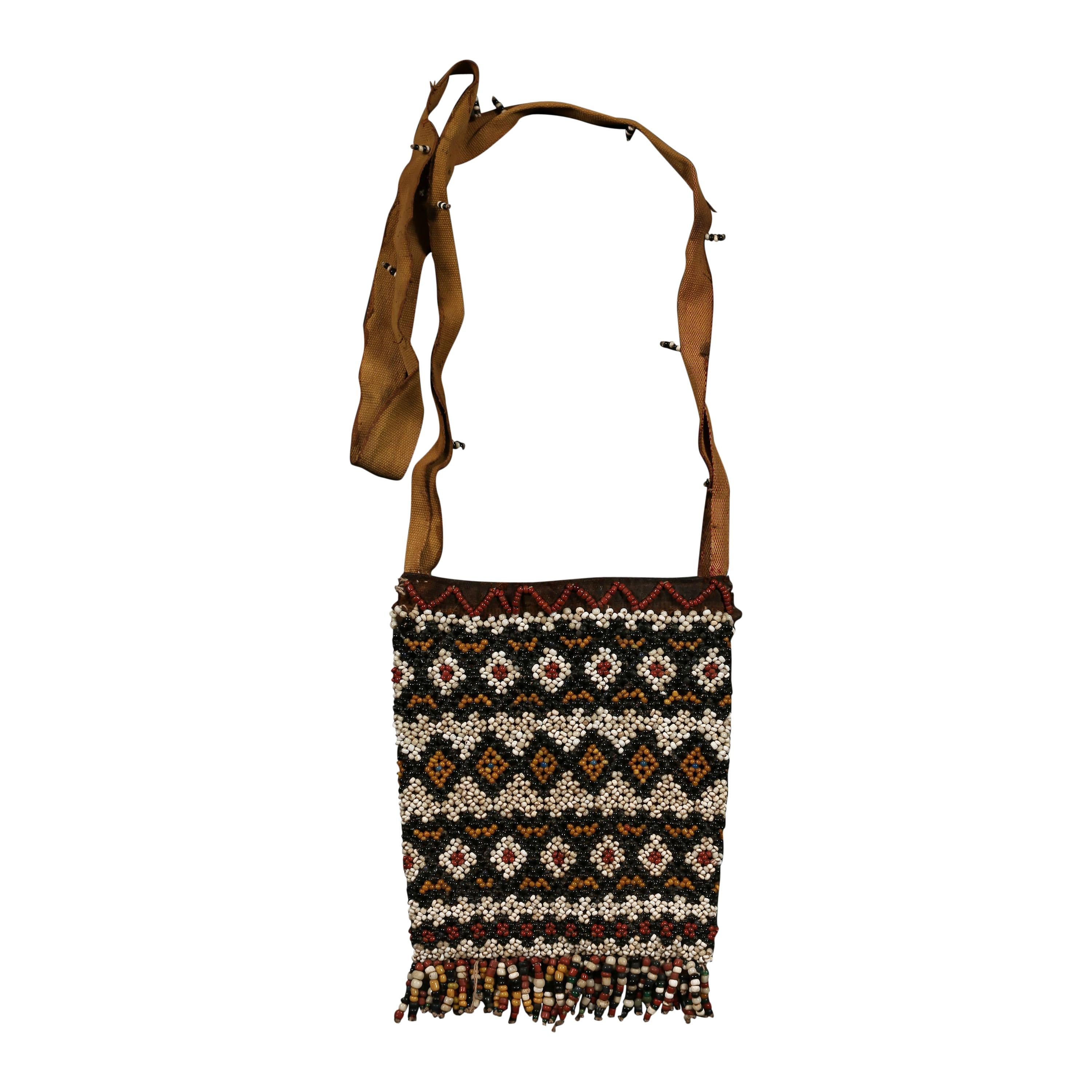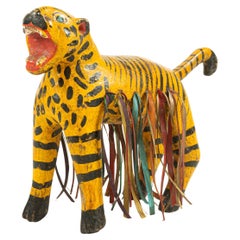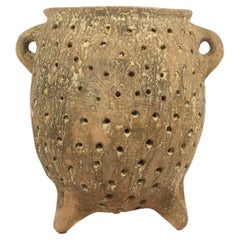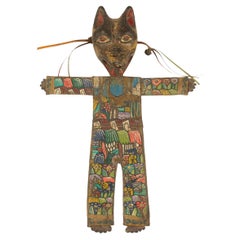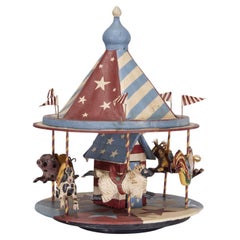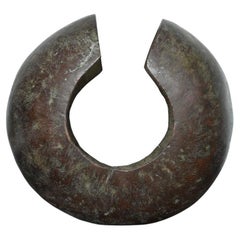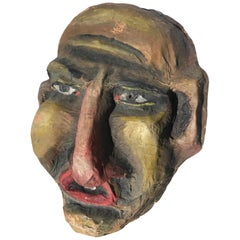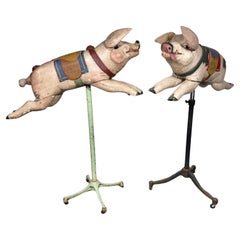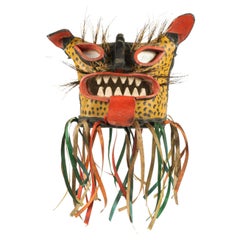
Rare to Find Folk Art Jaguar Mask Found in Zitlala, Guerrero, Mid-20th Century
View Similar Items
Want more images or videos?
Request additional images or videos from the seller
1 of 6
Rare to Find Folk Art Jaguar Mask Found in Zitlala, Guerrero, Mid-20th Century
Price:$1,020.01per item
$1,200List Priceper item
About the Item
- Dimensions:Height: 7.88 in (20 cm)Width: 7.09 in (18 cm)Depth: 3.94 in (10 cm)
- Style:Folk Art (Of the Period)
- Materials and Techniques:
- Place of Origin:
- Period:
- Date of Manufacture:1950
- Condition:Minor fading.
- Seller Location:Guadalajra, MX
- Reference Number:Seller: AP-005031stDibs: LU3550326660572
About the Seller
4.5
Vetted Professional Seller
Every seller passes strict standards for authenticity and reliability
1stDibs seller since 2018
24 sales on 1stDibs
Authenticity Guarantee
In the unlikely event there’s an issue with an item’s authenticity, contact us within 1 year for a full refund. DetailsMoney-Back Guarantee
If your item is not as described, is damaged in transit, or does not arrive, contact us within 7 days for a full refund. Details24-Hour Cancellation
You have a 24-hour grace period in which to reconsider your purchase, with no questions asked.Vetted Professional Sellers
Our world-class sellers must adhere to strict standards for service and quality, maintaining the integrity of our listings.Price-Match Guarantee
If you find that a seller listed the same item for a lower price elsewhere, we’ll match it.Trusted Global Delivery
Our best-in-class carrier network provides specialized shipping options worldwide, including custom delivery.More From This Seller
View AllRare Jaguar Wood Figure Found in Chilapa, Guerrero, Southern México, ca. 1940
By NONO
Located in Guadalajra, Jal
This vintage hand carved and hand painted Tiger, is presumed to have been made in or near Chilapa, Guerrero in circa 1940 in a Folk Art style. The carving has been made in a naive st...
Category
Mid-20th Century Mexican Folk Art Carnival Art
Materials
Wood
Mid-20th Century Clay Pot Found in Guerrero, Southern Mexico De Guerrero
By G. None
Located in Guadalajra, Jal
The pichancha or Tlalchiquihuite is a clay pot with small holes, which is used to wash the nixtamal. This utensil allows you to strain the nejayote (the lime water in which the corn ...
Category
Mid-20th Century Mexican Folk Art Decorative Bowls
Materials
Clay
Hand Crafted and Beautifully Painted Dolls found in Southern Mexico, Early 20th
By G. None
Located in Guadalajra, Jal
Hand Crafted and Beautifully Painted Doll found in Southern Mexico, Early 20th Century.
Origin: Villa de Zaachila, Oaxaca / Southern México.
Category
Early 20th Century Mexican Folk Art More Folk Art
Materials
Leather, Wood
Mid 18th Century Glazed Ceramic Botija found in Southern Mexico
By G. None
Located in Guadalajra, Jal
This elegant antique jar was hand-crafted in Spain circa 1760; round in shape with narrow base and neck, the vessel features a rolled rim at the top accented with a mustard color gla...
Category
Antique Mid-18th Century Mexican Spanish Colonial Ceramics
Materials
Ceramic, Terracotta
Mid 19th Century Spanish Mesquite Trunk Found in Zacatecas / Western México
By G. None
Located in Guadalajra, Jal
Beautiful mezquite wood trunk with remains of orange paint, found in Zacatecas, Western Mexico.
The piece in general shows wear but we find that it only adds character to this 250 year old trunk.
It will be a great piece with functional storage, perfect for storing blankets in a guest bedroom...
Category
Antique Mid-19th Century Mexican Spanish Colonial Trunks and Luggage
Materials
Wood
Mid 18th Century Leather Upholstered Arcon found in Jalisco Western Mexico
By G. None
Located in Guadalajra, Jal
Mid 18th Century Leather Upholstered Arcon found in Jalisco Western Mexico
This Arcon is in exceptional condition, the exterior is upholstered in brown/green leather. The wrought ir...
Category
Antique Mid-18th Century Mexican Spanish Colonial Trunks and Luggage
Materials
Upholstery, Wood
You May Also Like
Large 20th C. Americana Folk Art Carousel with Painted Farm Animals
Located in Morristown, NJ
20th c., Large Folk Art carousel with animals on a rotating base.Made of wood and canvas construction, with leather and other accent materials unsigned. The animals depicted are a ho...
Category
Vintage 1940s American Folk Art Carnival Art
Materials
Canvas, Wood, Paint
Old Copper Coins of Congo, Africa / Rare Objects / Folk Art/20th century
Located in Sammu-shi, Chiba
This is an old African coin.
Before paper money and money were in circulation, bartering was taking place in Africa.
Various goods such as textiles, fea...
Category
20th Century Congolese Other Tribal Art
Materials
Copper
Unusual Vintage Paper Mache Folk Art, Parade "Carnival" Mask
Located in Buffalo, NY
Unusual vintage papier mâché Folk Art..parade "carnival" theater mask.
Category
Vintage 1960s American Folk Art Carnival Art
Materials
Paper
Pair Carved Wood Carousel Pigs, mid 20th century , France
Located in Buffalo, NY
Add a touch of whimsy to your space with these charming antique carousel figure's.. featuring a carved wooden pigs. Crafted with precision and mounted on a sturdy vintage industrial ...
Category
Mid-20th Century French Folk Art Carnival Art
Materials
Wood
Early 20th century fairground figure
Located in London, GB
Early 20th century fairground figure
In the form of Benito Mussolini this early 20th century hand carved French fairground knockdown figure is in or...
Category
Early 20th Century French Folk Art Carnival Art
Materials
Pine
Bamana N'tomo mask, Mali, 20th century
Located in NICE, FR
Bamana N'tomo mask, Mali, 20th century
"Generally surmounted by three to eight horns forming a comb, the N'tomoface mask refers to a moment of compulsory education given to uncircumcised young boys in certain West African societies. The mask's discreet, even absent, mouth emphasizes the behavior expected of them in their future adult life after training: controlling and measuring their words, knowing how to keep quiet, preserving secrets and enduring pain in silence."
Excerpt from Masques du N'tomo, Marc Ladreit de Lacharrière Collection, Musée du Quai Branly Jacques Chirac, France.
The Bambara, or Bamana, live in central and southern Mali. Their name means “unbeliever” and was given to them by the Muslims. Animists, they believe in the existence of a creator god called Ngala, who maintains the order of the universe and coexists with another androgynous god called Faro, master of the Word, who gave all qualities to mankind and makes the fruits of the earth grow. Traditional Bamana art objects are closely linked to agrarian rites.
The Bamana dance these masks during initiation and circumcision ceremonies for young boys in the Ntomo society. The face, with its vertical outgrowths at the top, adopts geometric features beneath a rounded forehead, including an imposing busted nose, as the Bamana favor this organ in their statuary as it evokes sociability and clan cohesion. Indeed, during choreography, the dancer frequently touches the nose of the mask.
As teaching aids for candidates, masks from societies accessible to young boys and adults, such as the N'tomo, Korè and Ci wara...
Category
Vintage 1930s Malian Tribal Tribal Art
Materials
Wood
